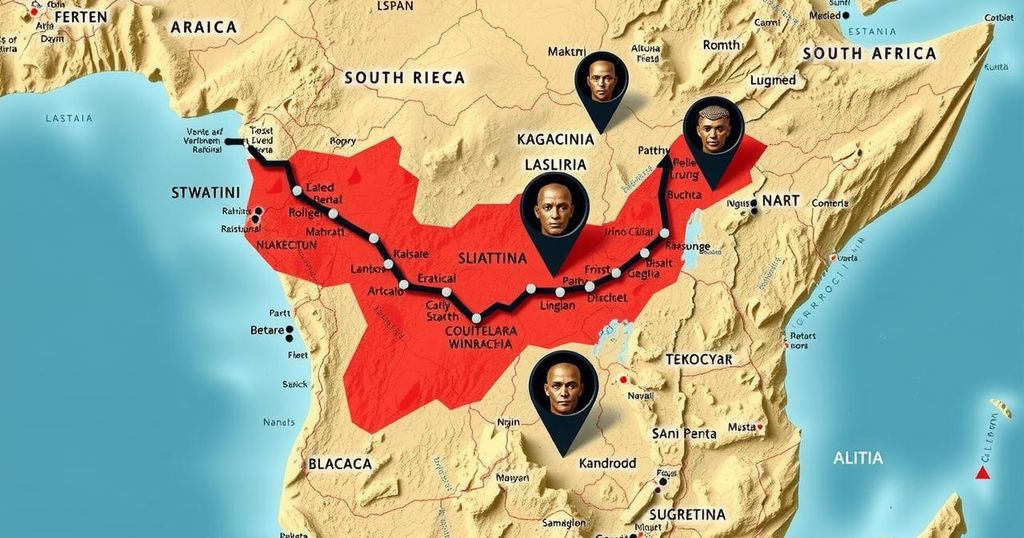As Mozambique faces a political crisis and violent protests post-election, South Africa has diverted trade and travel from its Leebombo Border Post to Eswatini’s Mananga Border Post. The unrest, which has resulted in numerous casualties, raises concerns about regional stability. Analysts suggest that renewed diplomatic efforts are crucial for dialogue and peace, with SADC prepared to assist if necessary.
In response to escalating violence in Mozambique, particularly following a tumultuous election, South Africa has shifted trade and travel operations from the Leebombo Border Post to the Mananga Border Post in Eswatini. This adjustment aims to provide a safer alternative for travelers and traders amid the unrest. Michael Masiapato, the South African Border Management Authority commissioner, highlighted the persistent challenges posed by the sporadic nature of the protests during this tumultuous time. While local authorities have increased military and police presence, it remains insufficient to completely mitigate violence in affected areas.
The political climate in Mozambique has been turbulent since the disputed election outcome which saw candidate Daniel Chapo declared the victor. This has lead to widespread civil unrest, resulting in numerous casualties. Analysts are wary that ongoing violence could jeopardize not only Mozambique’s stability but also that of the broader region, potentially exacerbating security threats and hindering economic progress. Political analyst Solomon Mondlane expressed cautious optimism, acknowledging calls from the international community, notably South Africa and European nations, for dialogue to ease tensions. “The situation is volatile,” he noted, appreciating South Africa’s willingness to facilitate discussions between opposing political factions.
Furthermore, Levy Ndou from Tshwane University underscored that regional diplomatic initiatives aimed at stabilizing Mozambique are promising. He observed that should the unrest intensify, intervention by the Southern African Development Community (SADC) may be necessary to restore peace and encourage economic activity. Zimbabwean President Emmerson Mnangagwa, chair of SADC, has indicated that the regional bloc stands ready to offer assistance to Mozambique.
Overall, the situation remains precarious, with continued dialogue seen as a key step towards stability. South Africa’s strategic rerouting of trade indicates proactive measures to mitigate the impacts of Mozambique’s instability on regional trade networks. Effective diplomacy and regional cooperation will be crucial in restoring peace and facilitating economic reconstruction in Mozambique and its surrounding nations.
The current political turmoil in Mozambique has its roots in the recent national election, which has been characterized by allegations of fraud and subsequent widespread protests. Violence erupted following the announcement of Daniel Chapo as the presidential candidate, prompting fears of a political crisis. In light of these events, neighboring countries, especially South Africa and Eswatini, have been adversely affected, necessitating urgent and strategic responses to ensure safety and continuity in trade and travel. Observers note that the unrest poses risks not only to Mozambique’s domestic stability but also to broader regional security and economic development.
In conclusion, the rerouting of trade and travel from South Africa to Eswatini highlights the significant impact of Mozambique’s political crisis on regional dynamics. The rising violence underscores the need for urgent dialogue and cooperation among regional stakeholders to restore peace and stability. Continued engagement and support from international partners remain vital in addressing the evolving situation and promoting long-term economic recovery in Mozambique and surrounding areas.
Original Source: www.voanews.com







